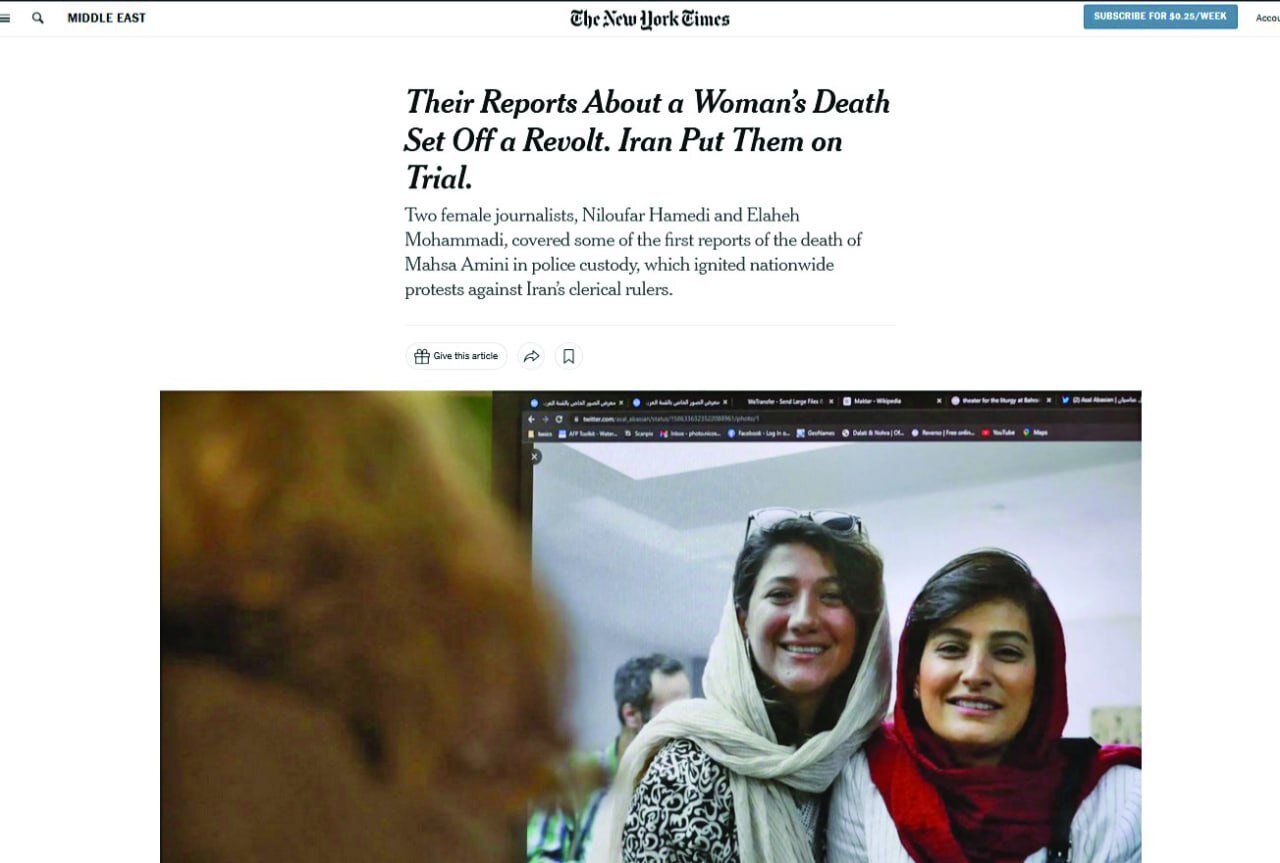Did Iran imprison two female journalists because of their reporting?

TEHRAN – Not long after its epic failure regarding the health of Iran’s Leader which raised the eyebrows and triggered severe criticisms, the New York Times came up with another story to keep the campaign against Iran alive.
What’s the Matter?
The NY Times alleges two Iranian female journalists named Niloufar Hamedi and Elaheh Mohammadi, who the NY Times introduces as “specialized in covering women’s issues”, were arrested in Iran after they had interviewed the family of Mahsa Amini. The piece goes on to quote another Iranian journalist named Amir Hossein (his surname is not provided) to throw the main punch. Amir Hossein, “a Tehran-based journalist,” tells the NY Times that what happened to the two journalists mentioned before is “the reality of journalism in Iran”…
Why it Matters?
Being attacked again as part of these days’ hoax against Iranians is nothing new and not a surprise. The world has seen what happened to Iran during the past 8 months, and how an all out world war was embarked against the country in media atmosphere. But the allegations regarding the violation of journalists’ rights, like many other allegations do far, stands in contrary of how the media environment works in Iran and what are the limitations of those who work in this environment. A brief review of stances taken by many media activists, from celebrities to journalists and university professors, specially on social media, can clearly depict how the dynamics of “criticizing the government” and it’s decisions work in Iran. There are certain frameworks for broadcasting news everywhere. Recent litigations in European countries, more notably about the content generation in social media, is just one example of how these dynamics are globally changing as new technologies push for more and more revisions.
What’s Really the Matter?
There is a lot to say about why the two journalists were arrested. As reports indicate, there have been numerous educational training courses for specific people with specific skills held by the U.S. in some countries, aimed at triggering social movements in Iran. These courses are planned, funded and held by the U.S. Department of States and enjoy the full cooperation of the Central Intelligence Agency (C.I.A). These courses are defined under the category of the “hybrid wars” and so far, as the reports say, are held in counties like Turkey, U.A.E, Netherlands, Armenia, Georgia, Malaysia, Thailand, Czech Republic, South Africa, Italy, and etc. According to a joint the report by Iran’s Ministry of Intelligence and IRGC’s Intelligence Organization, Niloufar Hamedi is one of the Iranians who had attended these courses. She had used her journalism carrier as a cover to reach out to Mahsa’s family, provoke her grieving family, and to spread rumors about her death. The case is exactly the same for Elaheh Mohammadi. The shocking information about what is being presented in the mentioned training courses can explain many of the incidents happened in Iran during the unrests. You can see the full text of the report at the Tehran Times’ website.
Leave a Comment